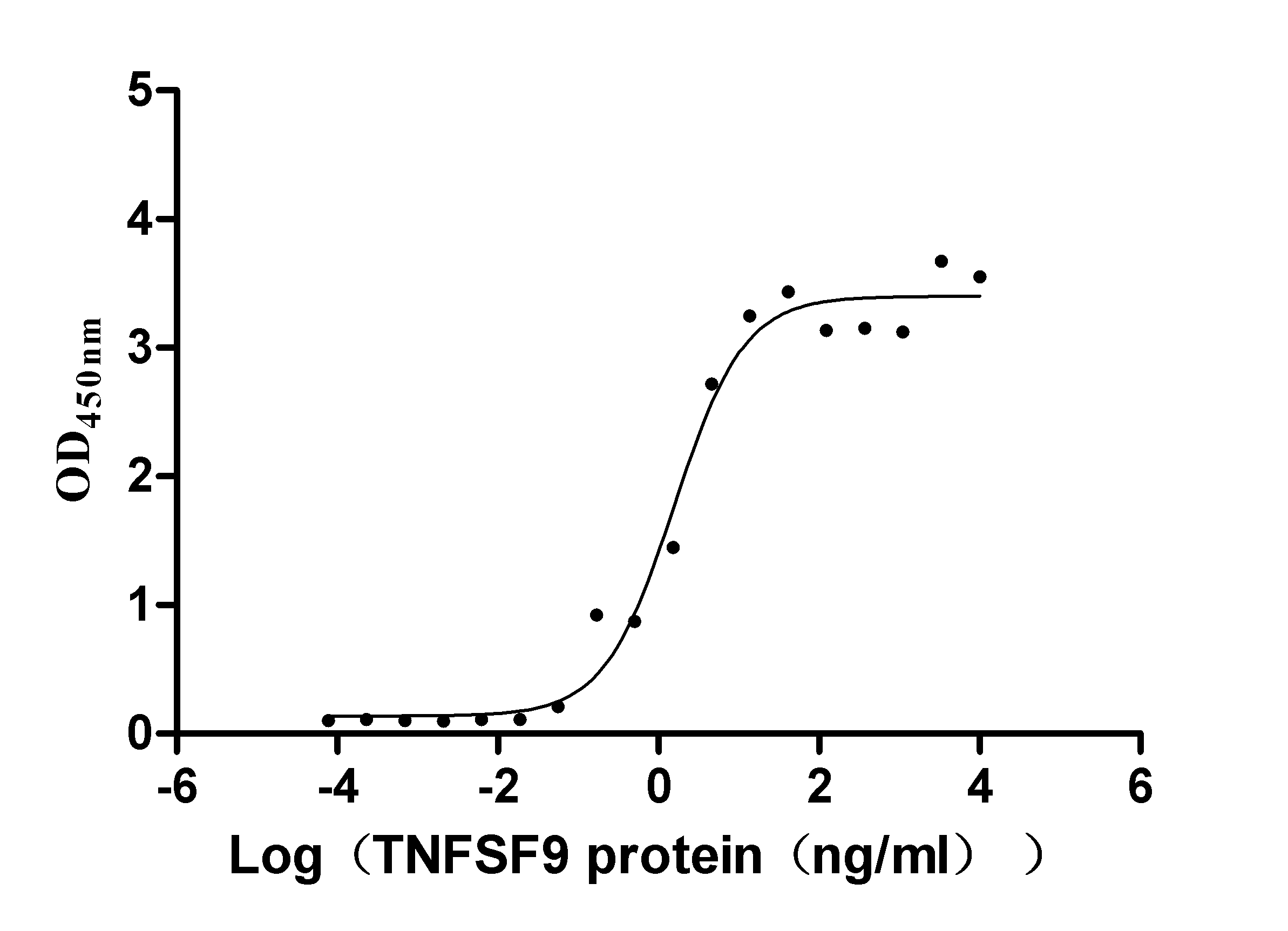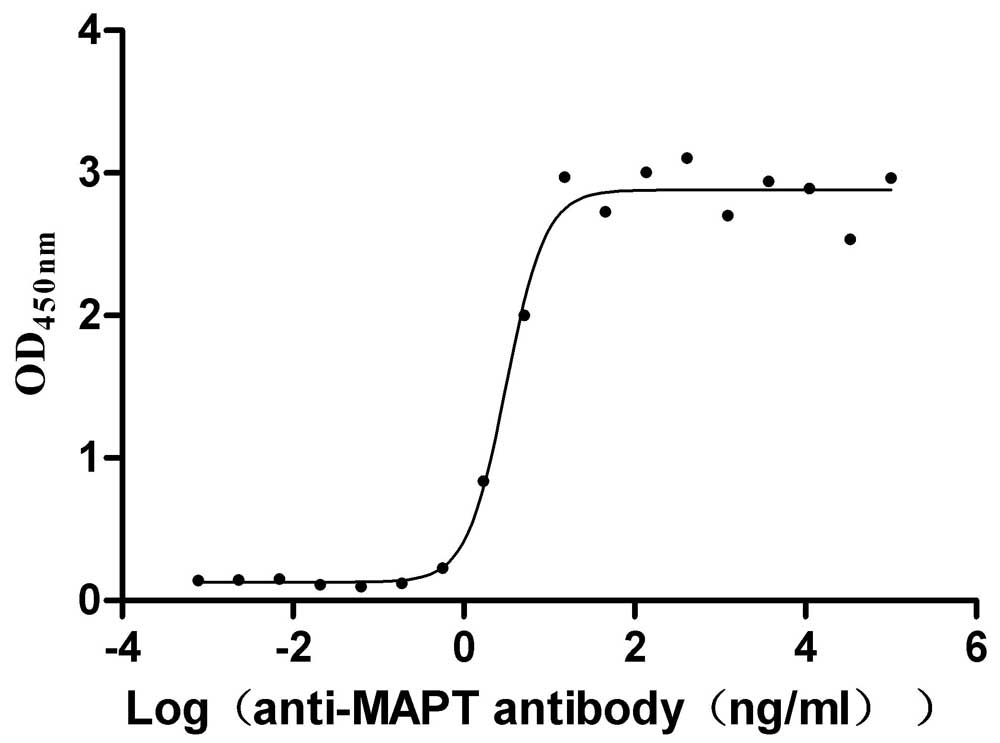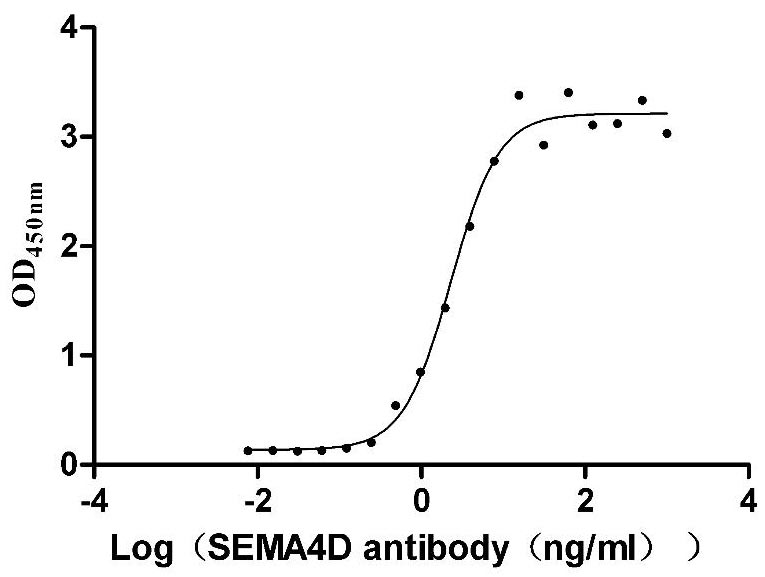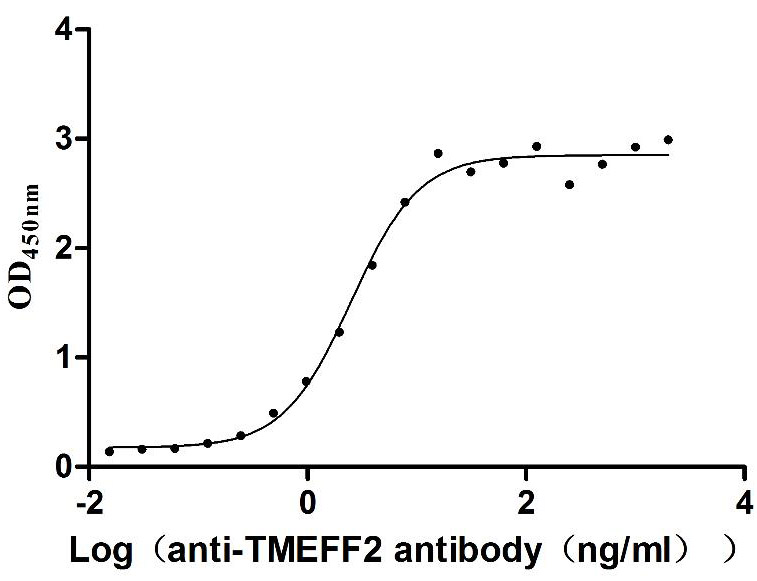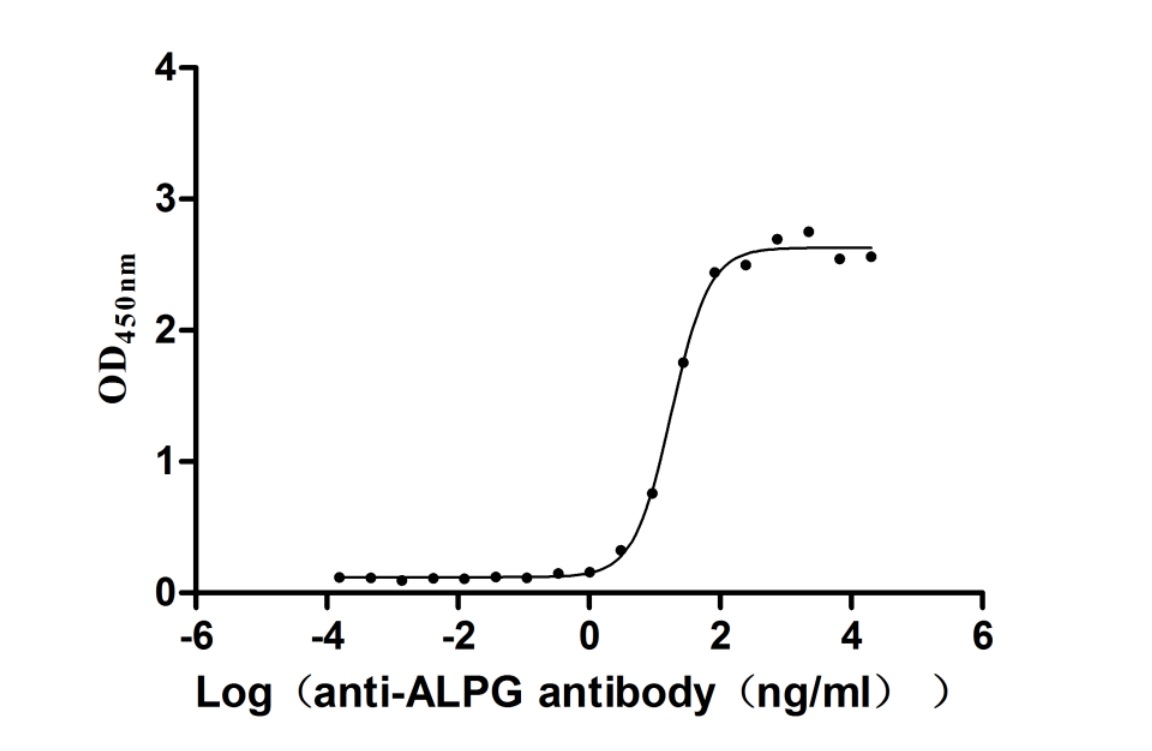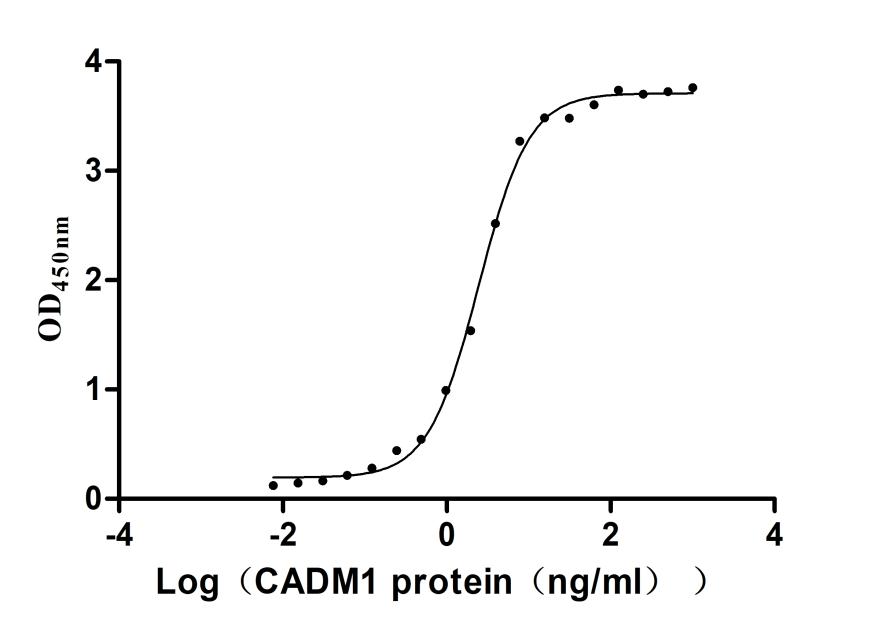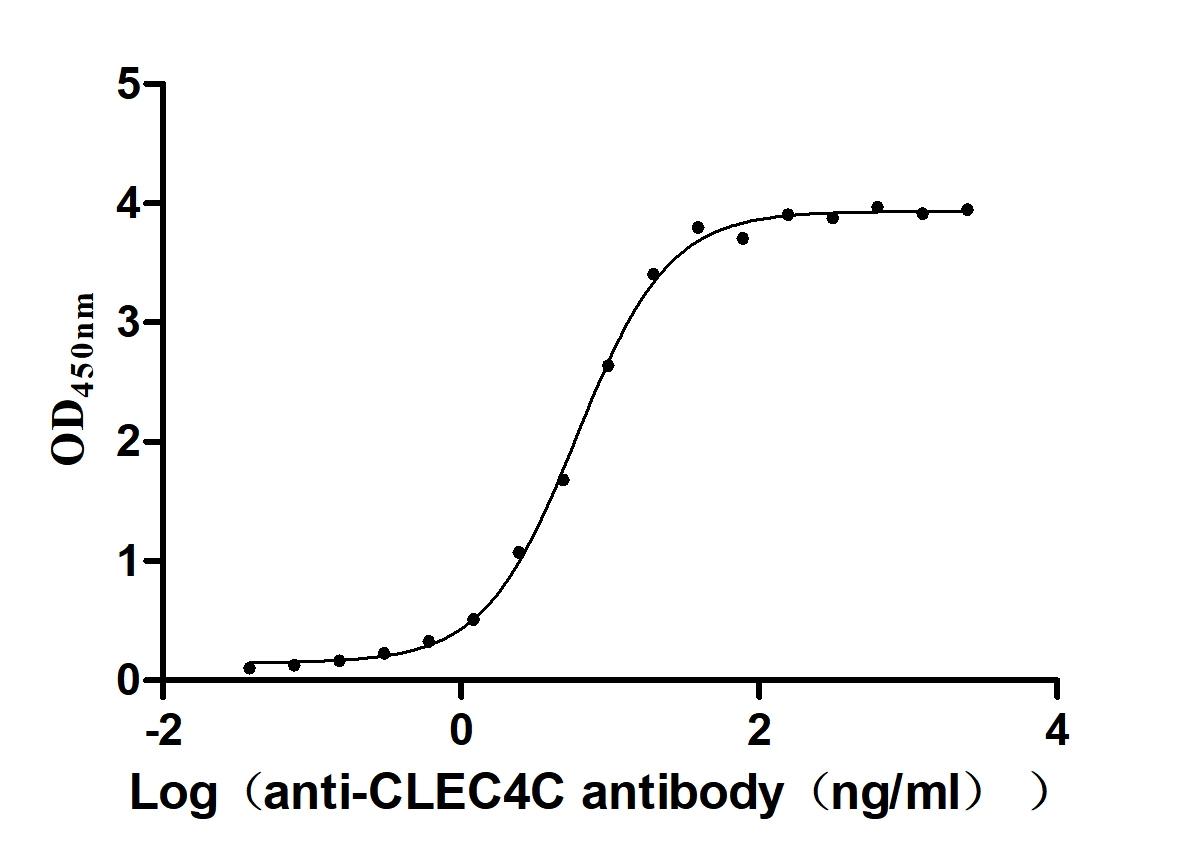Recombinant Mouse Voltage-dependent anion-selective channel protein 1 (Vdac1), partial
-
货号:CSB-YP713909MO
-
规格:
-
来源:Yeast
-
其他:
-
货号:CSB-EP713909MO
-
规格:
-
来源:E.coli
-
其他:
-
货号:CSB-EP713909MO-B
-
规格:
-
来源:E.coli
-
共轭:Avi-tag Biotinylated
E. coli biotin ligase (BirA) is highly specific in covalently attaching biotin to the 15 amino acid AviTag peptide. This recombinant protein was biotinylated in vivo by AviTag-BirA technology, which method is BriA catalyzes amide linkage between the biotin and the specific lysine of the AviTag.
-
其他:
-
货号:CSB-BP713909MO
-
规格:
-
来源:Baculovirus
-
其他:
-
货号:CSB-MP713909MO
-
规格:
-
来源:Mammalian cell
-
其他:
产品详情
-
纯度:>85% (SDS-PAGE)
-
基因名:
-
Uniprot No.:
-
别名:Vdac1; Vdac5Voltage-dependent anion-selective channel protein 1; VDAC-1; mVDAC1; Outer mitochondrial membrane protein porin 1; Plasmalemmal porin; Voltage-dependent anion-selective channel protein 5; VDAC-5; mVDAC5
-
种属:Mus musculus (Mouse)
-
蛋白长度:Partial
-
蛋白标签:Tag type will be determined during the manufacturing process.
The tag type will be determined during production process. If you have specified tag type, please tell us and we will develop the specified tag preferentially. -
产品提供形式:Lyophilized powder
Note: We will preferentially ship the format that we have in stock, however, if you have any special requirement for the format, please remark your requirement when placing the order, we will prepare according to your demand. -
复溶:We recommend that this vial be briefly centrifuged prior to opening to bring the contents to the bottom. Please reconstitute protein in deionized sterile water to a concentration of 0.1-1.0 mg/mL.We recommend to add 5-50% of glycerol (final concentration) and aliquot for long-term storage at -20℃/-80℃. Our default final concentration of glycerol is 50%. Customers could use it as reference.
-
储存条件:Store at -20°C/-80°C upon receipt, aliquoting is necessary for mutiple use. Avoid repeated freeze-thaw cycles.
-
保质期:The shelf life is related to many factors, storage state, buffer ingredients, storage temperature and the stability of the protein itself.
Generally, the shelf life of liquid form is 6 months at -20°C/-80°C. The shelf life of lyophilized form is 12 months at -20°C/-80°C. -
货期:Delivery time may differ from different purchasing way or location, please kindly consult your local distributors for specific delivery time.Note: All of our proteins are default shipped with normal blue ice packs, if you request to ship with dry ice, please communicate with us in advance and extra fees will be charged.
-
注意事项:Repeated freezing and thawing is not recommended. Store working aliquots at 4°C for up to one week.
-
Datasheet :Please contact us to get it.
靶点详情
-
功能:Forms a channel through the mitochondrial outer membrane and also the plasma membrane. The channel at the outer mitochondrial membrane allows diffusion of small hydrophilic molecules; in the plasma membrane it is involved in cell volume regulation and apoptosis. It adopts an open conformation at low or zero membrane potential and a closed conformation at potentials above 30-40 mV. The open state has a weak anion selectivity whereas the closed state is cation-selective. Binds various signaling molecules, including the sphingolipid ceramide, the phospholipid phosphatidylcholine, and the sterol cholesterol. In depolarized mitochondria, acts downstream of PRKN and PINK1 to promote mitophagy or prevent apoptosis; polyubiquitination by PRKN promotes mitophagy, while monoubiquitination by PRKN decreases mitochondrial calcium influx which ultimately inhibits apoptosis. May participate in the formation of the permeability transition pore complex (PTPC) responsible for the release of mitochondrial products that triggers apoptosis. May mediate ATP export from cells.
-
基因功能参考文献:
- The VDAC1-based peptide R-Tf-D-LP4 has multiple effects on liver cancer cells. PMID: 29747160
- Data indicate a specific pH-dependent dimerization of murine voltage-dependent anion channel 1 (mVDAC1). PMID: 29279396
- Studied melatonin's role in microvascular ischemia/reperfusion injury; found melatonin plays a protective role in mitochondrial fission-VDAC1-HK2-mPTP-mitophagy axis signal pathway suppression. PMID: 28398674
- microcirculatory ischemia/reperfusion injury can be attributed to Mff-dependent mitochondrial fission via voltage-dependent anion channel 1/hexokinase 2-mediated mitochondrial permeability transition pore opening and mitochondrial reactive oxygen species/cardiolipin involved cyt-c release. PMID: 28288978
- This study demonstrated that Vdac1 was significantly downregulated in amnesic mice and showed interaction with other proteins in interaction network. PMID: 28449397
- In this study, molecular dynamics simulations and single-channel experiments of VDAC-1 show agreement for the current-voltage relationships of an "open" channel and they also show several subconducting transient states that are more cation selective in the simulations. We observed voltage-dependent asymmetric distortions of the VDAC-1 barrel and the displacement of particular charged amino acids. PMID: 27653481
- this study describes novel drug candidates with a defined mechanism of action that involves inhibition of VDAC1 oligomerization, apoptosis, and mitochondrial dysfunction. The compounds VBIT-3 and VBIT-4 offer a therapeutic strategy for treating different diseases associated with enhanced apoptosis and point to VDAC1 as a promising target for therapeutic intervention. PMID: 27738100
- In cornu ammonis 1 region astrocytes, increasing miR-29a decreased VDAC1 and improved cell survival, while knockdown of VDAC1 improved survival. PMID: 27553862
- VDAC1-interacting anion transport inhibitors inhibited apoptosis via direct interaction with VDAC1 to inhibit its oligomerization and subsequent Cyto c release and apoptosis. PMID: 27064145
- Reducing VDAC1 expression induces a non-apoptotic role for pro-apoptotic proteins in glioblastoma multiforme cancer cell differentiation. PMID: 27080741
- TSPO as a novel element in the regulation of mitochondrial quality control by autophagy, and demonstrate the importance for cell homeostasis of its expression ratio with voltage-dependent anion channel 1 PMID: 25470454
- ATP flows through VDAC through multiple pathways, in agreement with our structural data and experimentally determined physiological rates. PMID: 24908397
- Reduced VDAC1 expression protects against Alzheimer's disease and synaptic deficiencies. PMID: 23948905
- Data suggest presence of unstructured C-terminal tubulin tail in VDAC pore decreases conductance and switches selectivity from anionic to cationic rendering ATP transport virtually impossible; involves stable salt bridge (K336-tubulin/D186-Vdac1). PMID: 24245503
- MAVS binds to voltage-dependent anion channel 1 (VDAC1) and induces apoptosis by caspase-3 activation, which is independent of its role in innate immunity. PMID: 23754752
- Abnormal interaction of VDAC1 with amyloid beta and phosphorylated tau causes mitochondrial dysfunction in Alzheimer's disease. PMID: 22926141
- Flexibility of the N-terminal mVDAC1 segment controls the channel's gating behavior. PMID: 23110136
- the N-terminal alpha-helix is located inside the pore of VDAC in the open state and remains associated with beta-strand 11 of the pore wall during voltage gating PMID: 22275367
- Dissection of VDAC1 dimerization/oligomerization as presented here provides structural insight into the oligomeric status of cellular VDAC1 under physiological and apoptotic conditions. PMID: 22117062
- VDAC phosphorylation is an important determinant of its interaction with dimeric tubulin. PMID: 22022409
- Mitochondria are aggregated by p62, following its recruitment by Parkin in a VDAC1-independent manner. PMID: 20890124
- Hypothermia induces oligodendrocyte precursor cell proliferation. VDAC1 may act as an intrinsic molecular thermosensor in individual cells under conditions of mild hypothermia. PMID: 20936704
- Our finding that VDAC1 is one of the targets for misfolded SOD1 within the nervous system raises substantial implications for the mechanism underlying premature degeneration and death of motor neurons PMID: 20797535
- Poisson-Boltzmann calculations show that the ion transfer free energy through the channel is favorable for anions, suggesting that mVDAC1 represents the open state. PMID: 20005234
- Taken together, these studies suggest that VDAC-1, directly or indirectly, contributes to ATP release from murine cells PMID: 15477379
- a single amino-acid mutation in VDAC prevented hexokinase I protection against apoptosis, suggesting direct VDAC regulation of the mitochondria-mediated apoptotic pathway PMID: 15818409
- VDAC is not the target for PTP inhibition by Ro 68-3400. PMID: 16626625
- findings demonstrated a link between VDAC1 mediated mitochondria-bound hexokinase activity and the capacity for glucose clearance PMID: 17207767
- Vdacs are dispensable for both MPT and Bcl-2 family member-driven cell death. PMID: 17417626
- Mutations in VDAC1, particularly K20S, altered channel activity, thereby interfering with VDAC function as the major pathway for the transport of metabolites and adenine nucleotides across the outer mitochondrial membrane. PMID: 17503466
- four glutamate residues, two each located in the first and third mVDAC1 cytosolic loops, are required for the interaction of VDAC1 with RuR and subsequent protection against cell death. PMID: 17590433
- interference with the binding of Hexokinase-I to mitochondria by VDAC1-derived peptides may offer a novel strategy by which to potentiate the efficacy of conventional chemotherapeutic agents PMID: 18308720
- The crystal structure of a beta-barrel eukaryotic membrane protein, the murine VDAC1 (mVDAC1) at 2.3 A resolution, is reported. PMID: 18988731
- results point to HK-I and HK-II as promoting tumor cell survival through binding to VDAC1, thereby inhibiting cytochrome c release and apoptotic cell death. PMID: 19049977
- Bid catalyzes MAC formation in isolated mitochondria containing Bax and/or Bak with a time course of minutes and does not require VDAC1 or VDAC3. PMID: 19261612
- These results show VDAC1 to be a component of the apoptosis machinery and offer new insight into the mechanism of cytochrome c release and how anti-apoptotic proteins regulate apoptosis and promote tumor cell survival. PMID: 19461077
- Crystal packing analysis of murine VDAC1 crystals in a lipidic environment reveals novel insights on oligomerization and orientation. PMID: 19574737
显示更多
收起更多
-
亚细胞定位:[Isoform Mt-VDAC1]: Mitochondrion outer membrane; Multi-pass membrane protein.; [Isoform Pl-VDAC1]: Cell membrane; Multi-pass membrane protein. Membrane raft; Multi-pass membrane protein.
-
蛋白家族:Eukaryotic mitochondrial porin family
-
组织特异性:High levels of expression detected in heart, kidney, brain, and skeletal muscle. Not expressed in testis.
-
数据库链接:
KEGG: mmu:22333
STRING: 10090.ENSMUSP00000099819
UniGene: Mm.3555
Most popular with customers
-
Recombinant Human Tumor necrosis factor receptor superfamily member 9 (TNFRSF9), partial (Active)
Express system: Mammalian cell
Species: Homo sapiens (Human)
-
Recombinant Macaca mulatta Microtubule-associated protein tau (MAPT) (Active)
Express system: Mammalian cell
Species: Macaca mulatta (Rhesus macaque)
-
Recombinant Macaca mulatta Semaphorin-4D isoform 1 (SEMA4D), partial (Active)
Express system: Mammalian cell
Species: Macaca mulatta (Rhesus macaque)
-
Recombinant Human Tomoregulin-2 (TMEFF2), partial (Active)
Express system: Mammalian cell
Species: Homo sapiens (Human)
-
Recombinant Human Alkaline phosphatase, germ cell type (ALPG) (Active)
Express system: Mammalian cell
Species: Homo sapiens (Human)
-
Recombinant Human Cytotoxic and regulatory T-cell molecule (CRTAM), partial (Active)
Express system: Mammalian cell
Species: Homo sapiens (Human)
-
Recombinant Macaca fascicularis C-type lectin domain family 4 member C(CLEC4C), partial (Active)
Express system: Mammalian cell
Species: Macaca fascicularis (Crab-eating macaque) (Cynomolgus monkey)
-
Recombinant DT3C (Diphtheria toxin & spg 3C domain) for Antibody Internalization Assay (Active)
Express system: E.coli
Species: N/A


